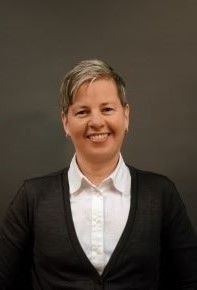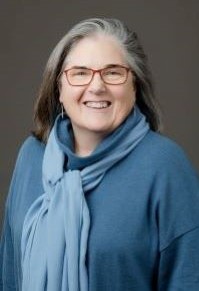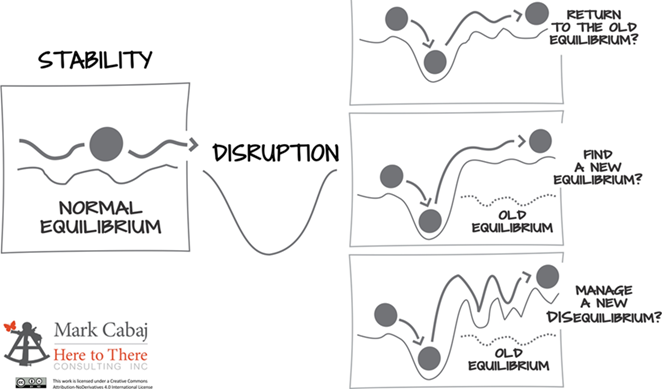The mission of the Institute for Child and Family Well-Being is to improve the lives of children and families with complex challenges by implementing effective programs, conducting cutting-edge research, engaging communities, and promoting systems change.
The Institute for Child and Family Well-Being is a collaboration between Children’s Wisconsin and the Helen Bader School of Social Welfare at the University of Wisconsin-Milwaukee. The shared values and strengths of this academic-community partnership are reflected in the Institute’s three core service areas: Program Design and Implementation, Research and Evaluation, and Community Engagement and Systems Change.
In This Issue
- Meet the ICFW Affiliates – Jennifer Jones, Dr. John Meurer, & Carmen Pitre
- Program Design & Implementation
- Research and Evaluation
- Community Engagement and Systems Change
- Recent and Upcoming Events
Meet the ICFW Affiliates
As Community Engagement and Systems Change are a core pillar of the ICFW, collaboration with our community and systems partners is critical to fulfilling our mission. In recognition of those that value collaboration and whose mission seeks to improve child and family well-being, we have invited those partners to join us as ICFW Affiliates. We are honored to introduce our three newest ICFW Affiliates with whom we look forward to partnering with now and into the future.

Jennifer A. Jones, MSW
Chief Strategy Officer, Prevent Child Abuse America
Jennifer Jones currently serves as the Chief Strategy Officer at Prevent Child Abuse America (PCAA) where she develops, implements and advocates for an integrated strategic framework to help grow PCAA’s leadership role consistent with national prevention priorities, and serves as the lead on regional and national strategic partnerships. Prior to her role with PCAA, Jones was the Director of the Change in Mind Institute and the Co-Director of the Safety and Resilience Impact Area at the Alliance for Strong Families and Communities. As the Director of the Change in Mind Institute, she worked closely with ICFW Co-Director Gabe McGaughey as Children’s Wisconsin was one of the organizations that participated in the inaugural Change in Mind class. Since then, Jennifer has partnered with Gabe and Luke Waldo to present the impact of and findings from the Change in Mind experience at conferences across the country.
Jones led all aspects of the Institute, including raising $1.7 million for the Texas Change in Mind Learning Collaborative and National Impact Study. Jones also served as the Project Director of the Child Safety Forward Initiative, a three-year Department of Justice cooperative agreement working with 5 jurisdictions to develop community-led, systematic solutions to reduce child fatalities caused by child maltreatment. Jones worked closely with the Alliance policy team, other national organizations and congressional representatives to advance brain science infused policy and trauma-informed care legislation.
Preceding her role at the Alliance, Jones served as the Associate Director of the Wisconsin Children’s Trust Fund (CTF). In her last two years at the agency, Jones served as Interim Executive Director, at the Board’s request, and coordinated all activities related to the Governor-appointed Child Abuse and Neglect Prevention Board, including managing all operations, and overseeing the agency’s budget and grantmaking functions. Before her positions with the Children’s Trust Fund, Jennifer served as the communications specialist in the Secretary’s Office at the Wisconsin Department of Children and Families and as a child welfare policy advisor in the Wisconsin Division of Children and Family Services. Jones is also a member of the National HOPE (Healthy Outcomes from Positive Experiences) Advisory Board and serves on the Board of Directors of the Hunger Task Force.
Jennifer received her master’s in social work from the University of Wisconsin-Madison and bachelor’s in social work from Marquette University.

Dr. John Meurer
Professor and Institute for Health & Equity Director, Medical College of Wisconsin
John Meurer, MD, MBA is Professor and Director of the Medical College of Wisconsin Institute for Health & Equity. The mission of the Institute is to improve health and advance equity through research, education, and shared expertise by working collaboratively with local, national and global communities.
Dr. Meurer is a general pediatric clinician-educator and is academically recognized for his achievements in community-engaged research. He has a national reputation for research to improve childhood asthma and advance early childhood development and community-engaged health systems research. He has been a collaborative and transformative steward and leader of 25 Advancing a Healthier Wisconsin projects including 5 recently focused on improving early childhood developmental care systems.
Dr. Meurer worked closely with ICFW Co-Directors Gabe McGaughey and Josh Mersky on his Parent Education and Support Network that aimed to improve early childhood developmental screening and assessment along with improved practices in data monitoring and integration. More recently, he co-led the Scaling Wellness in Milwaukee (SWIM) Policy Action Team with Gabe.
He holds a medical degree from the University of Wisconsin-Madison, completed his residency at Baylor College of Medicine, Houston, Texas, attained a master of business degree from Northwestern University, and was a fellow with the David Winston Program, Washington DC.

Carmen Pitre
President & CEO, Sojourner
Carmen Pitre is the President and Chief Executive Officer of Sojourner, Wisconsin’s largest service provider for families dealing with domestic violence. Under Pitre’s leadership, Sojourner provides crisis housing, system advocacy and individual support to thousands of women, children and families.
Carmen and her team at Sojourner worked closely with ICFW Co-Director Josh Mersky and Clinical Director Dimitri Topitzes to develop and administer a polyvictimization screening tool with clients that receive services from the Sojourner Family Peace Center. Subsequently, Carmen and her team have remained strong partners with the ICFW in the pursuit of collaborative community efforts through initiatives like Scaling Wellness in Milwaukee.
Pitre draws on decades of work and personal experience to improve the way the community supports families impacted by domestic violence. Pitre believes – and data proves – a holistic approach of co-locating services and coordinating resources is effective, efficient and yields better outcomes for families. In 2016, Pitre rallied key community leaders to create the Sojourner Family Peace Center where people impacted by domestic violence can access emergency shelter, domestic violence services, physical and mental health services, law enforcement and legal assistance, counseling, employment services, financial literacy, community education and professional training – all under one roof.
Pitre was integral in the 2009 merger of Sojourner Truth House and the Task Force on Family Violence when she became Co-Executive Director of the new agency, Sojourner Family Peace Center. Before the merger, Pitre was the Executive Director of the Task Force on Family Violence from 2002 to 2009. Pitre served as the Director of the First Judicial District Judicial Oversight Demonstration Initiative and the Coordinator of the Milwaukee Commission on Domestic Violence and Sexual Assault from 1997 to 2000.
Pitre graduated from the University of Southwestern Louisiana – Bachelor of Arts program in 1984.
Program Design & Implementation
The Institute develops, implements and disseminates validated prevention and intervention strategies that are accessible in real-world settings.
 Parenting with P.R.I.D.E. – Group-based, Virtual Parent-Child Interaction Therapy
Parenting with P.R.I.D.E. – Group-based, Virtual Parent-Child Interaction Therapy
By Kate Bennett and Haley Challoner Miller
Due to the COVID-19 pandemic, we recognize that it is imperative to meet the mental and behavioral health needs of families through safe, convenient and swift approaches. Providing telehealth services in the context of Parent-Child Interaction Therapy (PCIT) allows for evidence-based treatments to reach more families in a shorter period of time. As a result, waitlist times decrease for families seeking treatment. As many children and families are socially isolated during these times, virtual group-based therapy offers a sense of connection and community that otherwise would not be available right now.
As a result of earlier prototype designs and testing conducted by the Institute for Child and Family Well-being (ICFW), Children’s Wisconsin is currently providing an 8-week virtual therapy group for parents/caregivers and a child in their care: Parenting with P.R.I.D.E. This group is being facilitated by licensed mental and behavioral health clinicians and masters-level student interns, and includes components from the evidence-based intervention PCIT. Providing this group-based service through telehealth offers caregivers and children the opportunity to learn with and from one another in a supportive online environment from the comfort and safety of their own homes.
Parenting with P.R.I.D.E. helps caregivers of young children manage challenging behaviors including not listening, difficulty with transitions, acting out, and handling big emotions. Each family is able to learn tangible strategies that promote positive behaviors, enhance the caregiver-child relationship, and decrease undesired behaviors through engaging activities and live coaching with a PCIT-trained therapist. Additionally, this group benefits parents who may identify as overwhelmed, depressed, stressed, feeling guilty, or are confused about how to best meet the needs of their children who might be struggling with focus on tasks or changes in daily life. Parents who have previously participated in the ICFW’s PCIT-based groups have provided feedback that they feel less isolated and have experienced a reduction in parenting stress.
Specifically, the group format of the Parenting with P.R.I.D.E. program allows for virtual service delivery to a maximum of six caregiver/child dyads (families) through telehealth. Dyads include children between the ages of 2.5-5 years who were screened for inclusion criteria prior to intake. Caregivers access weekly therapy appointments through Zoom on Children’s Wisconsin MyChart, the web-based portal for their child’s electronic medical record. Services are provided in the following format:
- 60-90 minute intake appointment including baseline dyadic observation of caregiver and child.
- One hour group session per week for 6 weeks.
- One hour individual graduation session including post-treatment dyadic observation of caregiver and child.
Children’s Wisconsin plans to continue to utilize group-based therapy approaches for children and families beyond the pandemic and will begin to share new offerings in coming weeks.
Seeking Solutions for Youth Aging Out of Foster Care
By Luke Waldo
Youth aging out of foster care do not fare as well as their same-aged peers. Frequent exposure to trauma and adversity stresses executive functioning skills most needed to perform essential life skills that set the foundation for self-sufficiency and independence. According to the National Center for Children in Poverty, youth who are aging out of care are at increased risk for a variety of adverse outcomes, including homelessness/unstable housing, unemployment, low educational attainment, higher prevalence of poor health status, sexual and physical victimization, and incarceration.
Children’s Wisconsin’s Institute for Child and Family Well-being (ICFW) and its collaborative partners were awarded a planning grant from the Oshkosh Area Community Fund to facilitate a community assessment to delineate the causes of poor outcomes for youth 18-24 years of age who are aging out of foster care and to identify solutions. The assessment will help us gain a greater understanding of the risk factors and future difficulties that young adults in the region face when leaving the foster care system. These youth are often left on their own to navigate the transition to adulthood, and in the absence of strong, stable connections with parents or extended family members, there is no safety net to support them.
The ICFW will convene key stakeholders, including but not limited to the Wisconsin Department of Children and Families, Bay Area Workforce Development Board and the region’s Youth Advisory Council to collect and assess information about the extent of the challenges facing this population. The assessment will include surveying the region’s strengths, resources, needs, and gaps as they relate to the population of youth transitioning to adulthood. The assessment findings will provide a foundational framework that we will use for exploring existing service delivery models, such as Youth Villages LifeSet and/or developing a tailored intervention(s) to meet the unique needs of the target population. Through these collective efforts, our long-term goal is to provide a pathway to independence by strengthening youths’ resiliency and equipping them with the knowledge and skills necessary to become self-sufficient, build a strong support network, achieve educational and/or job training goals to earn a living wage, and maintain safe and stable housing.
Learn More:
Wisconsin Department of Children and Families Independent Living
Bay Area Workforce Development Board
LifeSet – Youth Villages
Research and Evaluation
The Institute accelerates the process of translating knowledge into direct practices, programs and policies that promote health and well-being, and provides analytic, data management and grant-writing support.
Birth to Three Social-Emotional Innovation Grants
We are pleased to announce a new partnership with the Wisconsin Department of Health Services (DHS) to support the evaluation of innovation grants awarded to 15 Birth to 3 programs across the state to pilot new and innovative efforts to improve social-emotional outcomes for participating children.
The ICFW team is conducting a cross-site evaluation of the 15 projects with 3 central aims:
- To describe trends in Birth to 3 program services delivered and outcomes of children and families served, observing changes that occur in the overall client population and specific demographic subgroups after the adoption of the proposed program enhancements.
- To identify common and unique approaches across the sites, and draw associations between observed trends, reported successes, and specified programmatic changes.
- To support recommendations about whether and which program elements should be sustained and incorporated in Wisconsin’s Birth to 3 programs.
Learn More:
Birth to Three Social-Emotional Innovation Project
Recent ICFW Publications
Mueller, D., Bacalso, E., Ortega-Williams, A., Pate, D. J., & Topitzes, J. (in press). A mutual process of healing self and healing the community: A qualitative study of coping with and healing from stress, adversity and trauma among diverse residents of a midwestern city.” Journal of Community Psychology.
Community Engagement & Systems Change
The Institute develops community-university partnerships to promote systems change that increases the accessibility of evidence-based and evidence-informed practices.
COVID Resilience Plan
COVID-19 placed unique and unprecedented stress on families, staff, and communities while also exacerbating already existing health and economic disparities. On March 18, 2020, Wisconsin’s governor issued a ‘Safer-at-Home’ order to mitigate the impact of COVID-19 that dramatically impacted nonprofit service delivery, a $14.6 billion sector in Wisconsin, accounting for 1 in 12 employees in the state. In one survey, 27.6% of nonprofits reported widespread conversion to virtual programming.

System disruption can lead to one of three types of outcomes for families and service providers to navigate; a return to the old equilibrium, finding a new equilibrium, or managing a new disequilibrium. The scale of the innovation required to adapt to the challenges associated with COVID-19 have been staggering, from rapid expansion of virtual therapy to radical shifts in group-based parent support programs. At no time in our profession’s history has innovation occurred on this scale so rapidly. How might organizations move quickly, but also identify what has value that will be useful to carry into the ‘new normal’ of a post-COVID social service delivery system?
COVID-19 has forced nonprofit human services providers to rapidly adapt to new restrictions on how they might engage families made more vulnerable because of either disparities or the inability of systems to support their well-being. Coming out of this unprecedented level of disruption, nonprofits have an opportunity to reflect on what of their innovative responses can support their objectives moving forward. Children’s Wisconsin’s Well-Being programs developed a COVID Resilience Plan to identify and elevate innovative practices that have surfaced since the start of the COVID-19 crisis that supports the well-being of families, are adaptable to our current limitations, and may enhance future practice. This process leveraged strategic learning to highlight lessons learned to carry forward in the future state, including:
- Support for enhancing staff comfort and skill in providing virtual group-based, home visiting, child welfare, and other supportive services. 42% of parents surveyed by the ICFW indicated that they preferred virtual services to traditional in-person services. While connectivity challenges and disparities likely left some families with a reduced amount of support, home visiting and other services still saw new families that hadn’t sought out services previously. Segments of a nonprofit’s target demographic may be more open to, or even prefer, having virtual options continue.
- Virtual training for staff, stakeholders, and foster parents, when done in an engaging manner, addresses some challenges around travel and childcare while also providing flexibility of how and when to deliver content. The COVID Resilience Plan will continue to explore the balance between convenience of virtual services and the quality of engagement and service delivery through these methods.
- Community engagement, providing authentic role and voice of people with lived experience in program development and feedback, continues to be essential. Families are stressed because of a lack of capacity of systems to meet their needs. Eliciting their voice and insight is fundamental to advocacy and systems change. Virtual connection options provide new, more widely accepted, methods for program participants to have input into program direction.
The ongoing work of the COVID Resilience Plan is now focused on facilitating Communities of Practice focused on these three prioritized findings to deliver recommendations on concrete next steps for activities that will carry forward beyond the restriction associated with social distancing. While these findings reflect a specific set of experiences, the role of virtual service provision in what was almost exclusively in-person supportive services is inescapable. Different organizations may be able to yield relevant insights for their own work from these lessons, or adapt the strategic learning process to identify their own specific lessons learned to carry into the ‘new normal’ of a post-COVID world.
Learn More:
Practice Brief: Strategic Learning
Practice Brief: After Action Reviews
Recent and Upcoming Events
The Institute provides training, consultation and technical assistance to help human service agencies implement and replicate best practices. If you are interested in training or technical assistance, please complete our speaker request form.
ICFW 5th Anniversary – May 2021
Schedule of events to celebrate our anniversary year and highlight our efforts to achieve our mission will be announced soon on our website and social media.
ICFW Webinars:
April 14th:
Parenting with PRIDE – Designing Group-based, Telehealth Solutions with PCIT in Times of COVID
Presentations, Trainings and Workshops:
January 21st-22nd:
Janczewski, C.E., Nitkowski, J. (2021). Parental Mental Health and Substance-Related Services Among CPS-Involved Families, Society for Social Work Research, January 22. Virtual Event
February 22nd:
April 15th:
May and July 2021:

